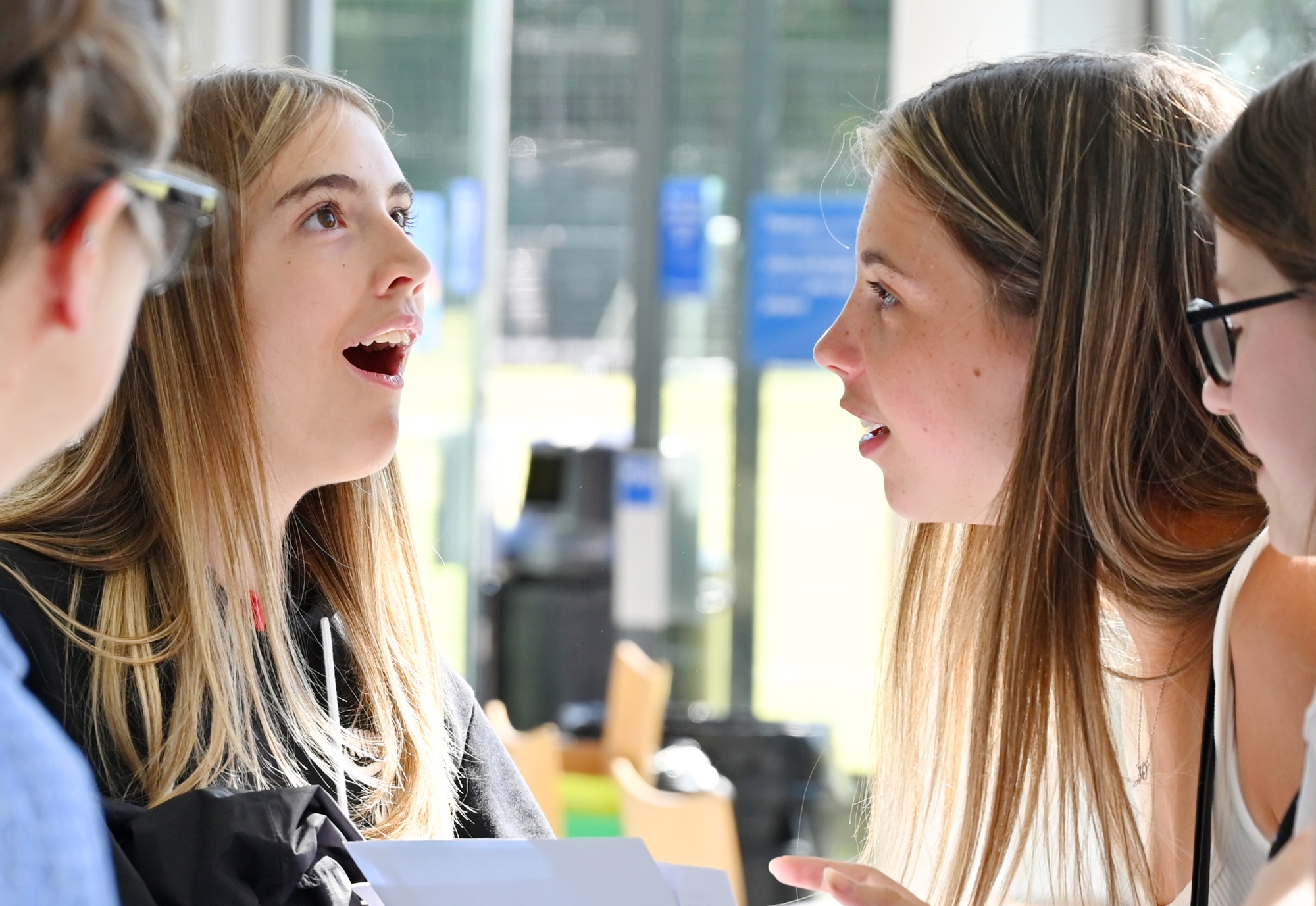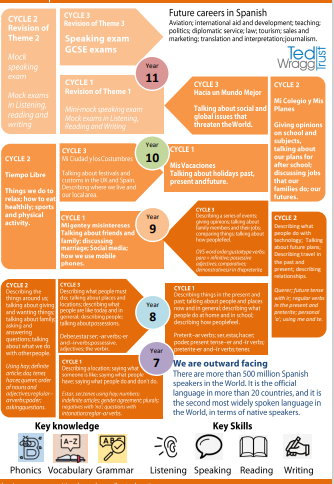Languages
You live a new life for every language you speak, if you know only one, you live only once
Czech Proverb
The curriculum exposes students to differing cultures and it challenges the misconception that British people don’t need languages. Students learn how widely spoken Spanish is as both a first and second language. They explore the similarities and differences between life in the UK and life in Spain, for example through learning about the school system and how key festivals are celebrated in Spain and the Spanish speaking World.

Our curriculum covers both linguistic and cultural aspects of language learning to ensure that students have enjoyable language learning experiences in and outside of the classroom, develop a solid understanding of grammar which will support their understanding of English, and become curious and open-minded about the wider world.
What makes us special
At West Exe, our Language teachers are passionate about giving all our students the opportunity to learn about different cultures through the study of Spanish so that our students will grow into brave, curious, happy, successful, global citizens. Our rigorous approach ensures that all West Exe language learners develop an excellent understanding of vocabulary, grammar and phonics, and are able to communicate with confidence in Spanish.
Going to Barcelona in Spain with my Friends was the highlight of my Year 9! Exploring the landscapes, immersing ourselves in the vibrant culture, and trying new things together made it an adventure. I loved visiting the historic sites and trying local food. I loved visiting the Picasso Museum
Year 9 student
How do we achieve this?
We teach a grammar-led lessons, where grammar points are introduced in a logical sequence, based upon their complexity and frequency. We begin with the most common irregular verbs in Year 7 Term 1, then introduce gender, adjective agreements, regular verb patterns in the present tense and prepositions.
The vocabulary selected comes from the most frequently used 2000 words in Spanish. It is chosen for its usefulness in terms of frequency, but also how well it can illustrate the main grammar point of the lesson. Lessons are front-loaded with phonics, vocabulary and grammar instruction, and knowledge is deepened through meaningful practice in different modes and modalities.
The Spanish phonics system is relatively shallow, therefore most phonics are taught in Year 7 and then revisited in Year 8 onwards.
Curriculum 5 Year Plan
Our Spanish curriculum is evolving. In September 2023, we will introduced a new Y9 Scheme of Learning, and in September 2024 we will introduce a new Y10 Scheme of Learning, which will start to prepare students for the new Spanish GCSE, and first examination in summer 2026. Students will be well-prepared for the depth of knowledge of vocabulary, phonics and grammar that the new GCSE requires, and will have the skills which form the base of language learning for life.
The three GCSE themes are each explored in the lower school and the vocabulary and grammar are re-visited and built upon throughout. Our GCSE course has 12 topics are looked at in real depth with an emphasis on the key grammar and vocabulary which will enable students to experience success not just in exams but in real-life experiences.
Success in Spanish
We were so proud to welcome back our students who are now studying A Level Spanish at our recent Year 12 Awards Celebration, and for them to speak to us in brilliant Spanish and tell us how much they were enjoying the challenge of studying a language at this level. Other successes that we really value as a department are seeing our students grow in confidence from year 7 to year 11, especially when speaking of others, and seeing their minds open to the world beyond and the possibilities that lie in front of them.
Assessment
Students are assessed through a variety of no stakes (silent starters), low stakes (vocabulary tests to support mastery) and high stakes (end of cycle — informs attainment and progress) in the four language skills of reading, writing, listening and speaking.
Responsive teaching
- Identify and address misconceptions
- Identify students who need additional challenge or support
- Determine next steps in teaching
Low-stakes assessment
- Student feedback and improvement
- Identify students who need additional challenge or support
- Inform teaching
- Motivate learners
Formal assessment
- Robust student data for analysis and decision-making
- Consolidation & revision
Knowledge Organisers
Knowledge organisers in KS3 focus on Key Vocabulary which forms the bedrock of language learning, and Sentences of the Week which support students’ understanding of how vocabulary and grammatical structures are used in context.
Support and intervention
Every student completes several twenty minute sessions of extended practice per week in Spanish to learn key vocabulary. This ensures that every students memorises the GCSE word list over the course of their five years of Spanish learning which sets them up for success in the exam. In Year 11, students complete a full revision cycle which covers all the vocabulary and grammar learning from years 7 to 10, and exam skills mastery thought guided practice using past exam questions every lesson.
Enrichment
Every child at West Exe has the opportunity to learn a second language such as Italian through our Electives Programme, where they will also have sessions about a variety of cultures from around the world. We really enjoy welcoming Spanish secondary students from Vigo in Galicia to West Exe every year who spend 2 weeks with us and are paired with our Year 10 students. A real highlight for us is taking our students to Spain on trips to exciting places such as Barcelona and Madrid.

